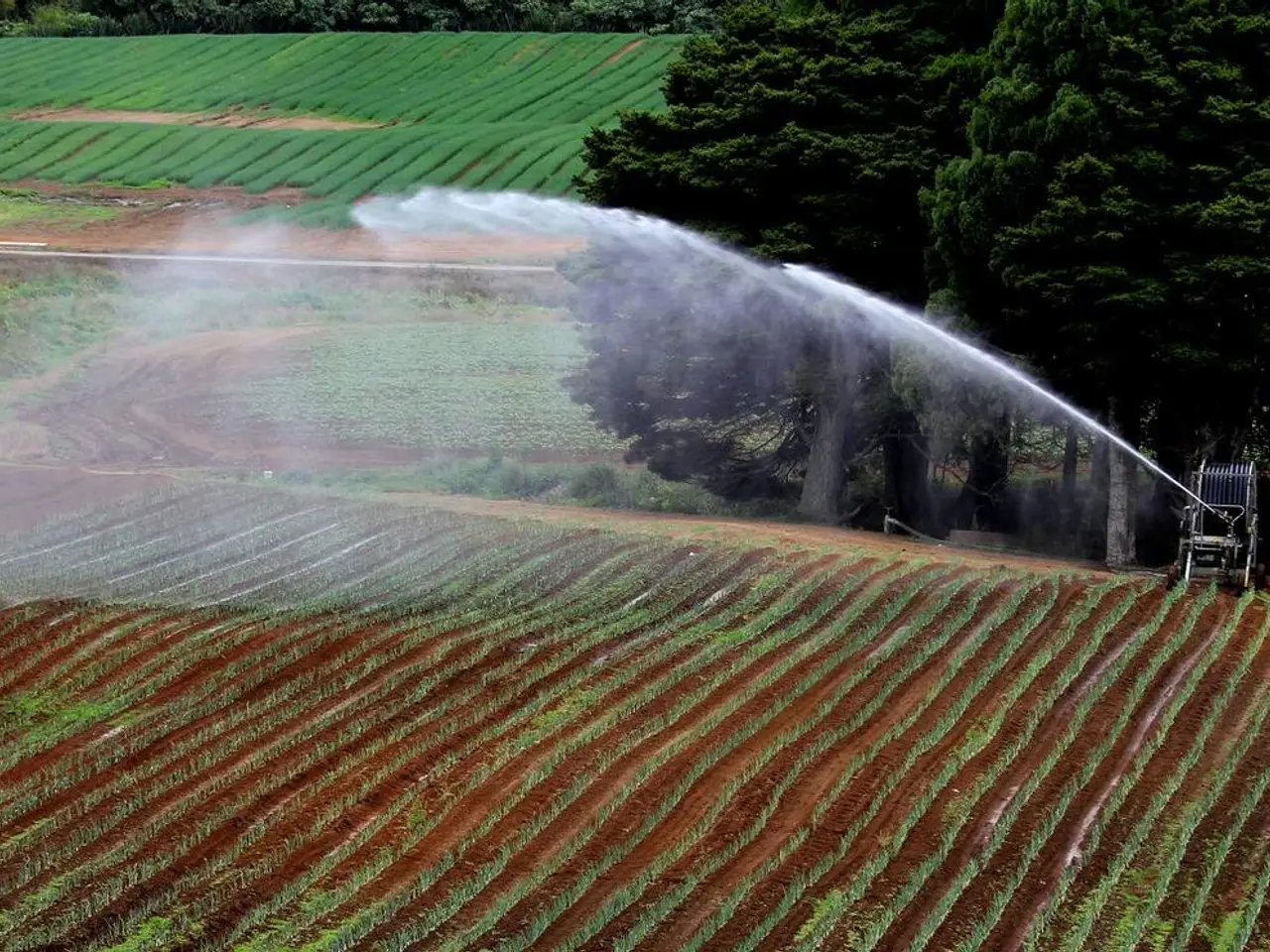Increasing Momentum in Dutch Impact Investing: NAB's Latest Report Highlights Significant Growth
The Dutch impact investing and sustainable development investment market has witnessed significant growth over the past three years, with assets under management (AUM) in impact and SDG-aligned investments increasing by approximately 24% between 2020 and 2023. This growth has propelled the total impact and SDG-aligned AUM to around €203 billion by the end of 2023, according to the Netherlands Advisory Board on Impact Investing (NAB).
Of this total, €52 billion were impact investments, and €151 billion were classified as sustainable development investments (SDIs). This represents a notable shift, with impact and sustainable development investments now constituting roughly 7-8% of the total AUM held by Dutch investors, up from the 4-6% share reported in 2020.
The NAB has set a target for Dutch investors to allocate 10% of their total AUM to impact investments by the end of 2025, and current trends suggest the market is "well on the way" to achieving this goal.
Climate-related investments are the most favoured impact theme for Dutch impact investing, with a growing focus on investment in the circular economy. Interestingly, social impact themes are less used for impact investments compared to climate-related investments.
The survey conducted by the NAB revealed that 83% of respondents have formulated a clear target allocation for their impact investments. Notably, around a third of the responding organizations hold more than €10 billion in AUM. Major Dutch institutional investors, including a.s.r., Achmea, and VGZ, have committed to reaching the 10% target.
However, the NAB recommends adopting impact categorisations that distinguish between impact-aligned and impact-generating investments. The organisation also calls for collaboration to expand investable options in underfunded SDGs and for more transparent reporting on outcomes and investor additionality.
While the Dutch economy has shown positive growth, with recent annual GDP growth at 1.9%, the NAB did not provide direct data on the broader Dutch economy's growth in relation to impact investing. However, the expanding impact investing market demonstrates the country's leadership in sustainable finance.
Investments in developing markets continue to attract the lion's share of impact investments, with 56% allocated to Europe and 8% to North America. Unfortunately, only 13% of impact capital is directed to Asia, 11% to Africa, and 11% to Latin America and the Caribbean, indicating a need for clear targets, such as the NAB's 10% allocation for impact and 4% sub-target for allocation in emerging markets, to address this imbalance.
Healthcare has become a more important target for Dutch impact investing since the COVID pandemic, with the sector likely to see continued investment in the future. The NAB's emphasis on transparency, collaboration, and targeted investment strategies positions the Dutch impact investing market as a leader in sustainable finance, poised for continued growth and impact in the years to come.
- The Dutch impact investing market, with an estimated €203 billion in assets under management (AUM) by the end of 2023, has witnessed noticeable growth in social impact and sustainable development investments.
- Climate-related investments are the most preferred impact theme for Dutch impact investing, although social impact themes are less utilized compared to climate-related investments.
- In the Dutch impact investing landscape, ventures capital, development finance, and environmental-science should also be considered areas of interest, as they contribute to the overall growth and development of the market.
- Personal-finance and wealth-management institutions in the Netherlands should prioritize investing in impact and sustainable development projects, as it not only improves financial opportunities but also contributes to environmental-science and social impact.
- Science and career-development in the field of sustainable finance and impact investing can help cultivate a workforce equipped to manage and accelerate the energy transition and tackle climate-change.
- Environmental-education and self-development are vital for fostering an understanding of the importance of impact investing and sustainable development, thereby facilitating further growth in this sector.
- As more businesses and individuals adopt impact investing practices, the Dutch economy is poised to reap the rewards of a sustainable and socially responsible future, benefiting both the economy and the environment.




